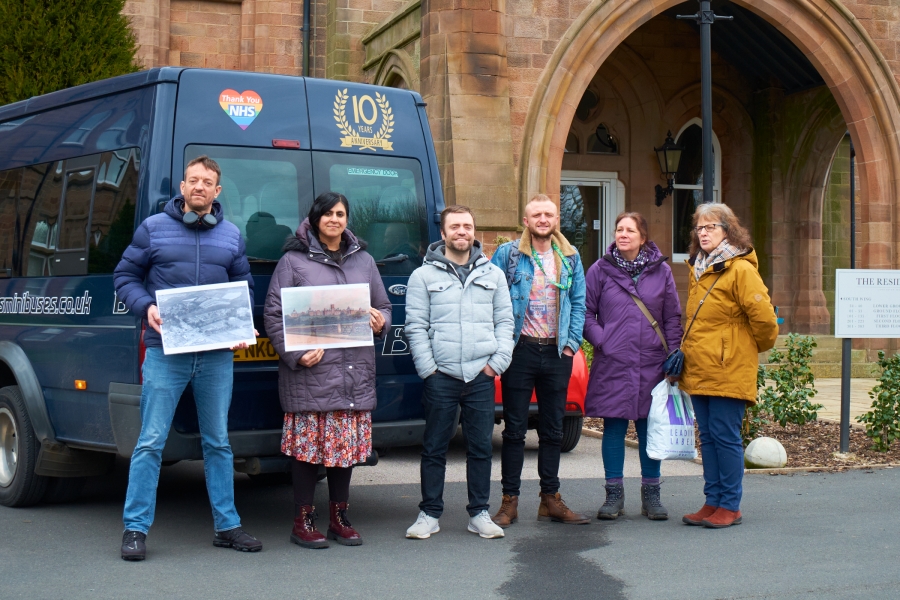A new cultural programme is offering local people the chance to explore, imagine and share tales of living with mental health challenges across Lancashire, in the past and today.
The Recovery College at Lancashire and South Cumbria NHS Foundation Trust have launched another exciting cultural project in partnership with Lancashire Archives and Lancashire County Council, Change Minds.
Change Minds is a national culture therapy programme working with people living with mental health challenges in Lancashire. It gives users the opportunity to be part of a shared experience of exploring local historical mental health records from over one hundred years ago.
The 12 week programme encompasses a fascinating journey of learning, creativity and reflection around mental health attitudes, treatments and recovery journeys, making stark comparisons to historic records from Lancaster Moor County Asylum and the current day.

Vicci McCann, Senior Archivist at Lancashire Archives, said:
“There is such a rich history in Lancashire, and through our archive records, which in total expand out over 9 strong rooms we are fortunate to have many photographic records so we can really bring this history alive.”
During the project attendees will have the opportunity to visit the historic Lancaster County Moor Asylum site and choose an individual to follow through time using the physical and online archives available.
Anna Watson, Change Minds Project Lead, continued:
“Attitudes have thankfully changed so much over the last 100 years and we can recognise now that Lancaster Moor would have been an intimidating place for someone who was unwell.
Through the records it is evident to see the advancement of treatment and how much of the language and terminology used wouldn’t be acceptable now. People have an enormously different experience, people were held in hospital unfortunately for their whole lives when in comparison today they would receive in community treatment.”
The Recovery College was founded in January 2019 to provide free health and wellbeing courses for adults across Lancashire and South Cumbria. The college is a safe place for people to share their own lived experiences and stories which in turn can assist users through their recovery journeys.
Since its creation they have attracted over 4000 learners with enrolments peaking after the pandemic.
Suzie Smith, Service Development Manager, Recovery College, added:
“We are delighted to be holding this project in Lancashire and allowing our service users the opportunity to share their own mental health stories in 2023. We know that speaking openly about mental health helps to eliminate stigma and aid recovery and providing a unique non-judgmental space for this to happen is really important for us.”
Following the programme attendees will be invited to demonstrate what they have learnt and experienced through a piece of artwork to be displayed in an exhibition.
Ibrahim Tanner, Senior Peer Facilitator has been attending the course, and said:
“Change Minds has been really interesting. We have begun to travel through people’s lives based on the shared fact that they were all admitted to Lancaster Moor Hospital with Mental Health problems. This work has really helped in building a picture that really shows that people with mental health problems are so much more than a diagnosis.
I have seen my project about young boy who was perceived as different, develop into the story of a son, a husband, a father and potentially a war hero, even finding out where he lived and where he was eventually laid to rest. The journey is by no means at an end, but it has been incredible so far and I can’t wait to find out more.”
Anna Watson, concluded:
“By creating a piece of artwork, whether that be a picture, painting or a poem it will represent each individual journey and the inspiration the course has given them. We want everyone to benefit from peer support and explore more resources from the Recovery College and Lancashire Archives.”
Find out more about the Recovery College.


